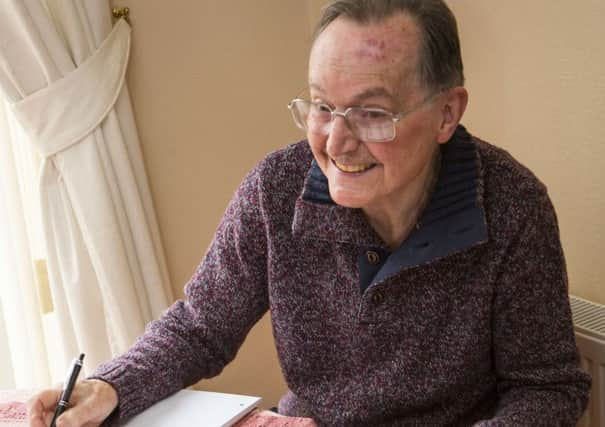How '˜claw hand' surgery helped preacher


When David Stead found he could no longer write his sermons he knew something was seriously wrong with his hand.
It had started about a year before when David, 74, a Methodist local preacher from Armley, Leeds, noticed a lump on the palm of his hand below his little finger.
Advertisement
Hide AdAdvertisement
Hide AdHis little fingers started curling and he was unable to straighten them again, leaving his little fingers bent into the palms of his hands.


This caused a lot of problems in his daily activities; he kept catching his fingers, knocking things over and holding a hot drink became awkward.
He even had to ask his wife Margaret to cut up his food as he was struggling to hold a knife and fork properly.
Eventually, writing by hand became almost impossible and he had to resort to two fingered typing instead.
Advertisement
Hide AdAdvertisement
Hide Ad“My hand was curling up like a claw. It affected every aspect of my life,” said David, whose work involves performing services of worship at 23 churches within the Methodist circuit across Leeds and organizing the Church’s social activities.


It reached the stage that David knew he had to do something about it. He visited his GP who referred him to Mr Daniel Thornton, consultant plastic, reconstructive and hand surgeon at Spire Leeds Hospital.
He was diagnosed with Dupuytren’s disease.
Dupuytrens disease is a common hand deforming disease, which causes a thickening of the connective tissue of the palm and fingers. It usually starts with a tiny lump in the palm. As it progresses, string-like cords develop beneath the skin and the affected fingers pull towards the palm and cannot be straightened.
Many people learn to cope with the deformity but eventually seek treatment when the affected hand becomes like a claw.
Advertisement
Hide AdAdvertisement
Hide AdWearing a special splint at night can help but does not cure the underlying problem. And while steroid injections into the hand have been tried, they only have a 50 per cent success rate.
During surgery the knotted tissue is removed through a cut from the palm into the fingers. Very severe cases may require a skin graft and repeat operations.
Famous sufferers include actor Bill Nighy and the late Lady Thatcher.
It isn’t known what causes the condition although there are believed to be genetic links.
Advertisement
Hide AdAdvertisement
Hide Ad“When David first visited me both little fingers were stuck in the palms of his hands,” said Mr Thornton.
“This was seriously restricting his activities both in work and at home. Further deterioration would have rendered the little fingers useless with them getting in the way and weakening his grip.”
David underwent an operation whilst awake under regional anaesthetic.
The operation involved removal of the tissue responsible for holding his fingers in their bent position allowing him to straighten them again improving his grip.
David had surgery on his left hand in August 2014.
Advertisement
Hide AdAdvertisement
Hide AdAt the time he was also showing symptoms of the same condition in his other hand and was advised to have surgery before it worsened.
He underwent surgery to his right hand in February 2015. Both procedures were funded by the NHS.
Each procedure took around one hour, under regional anaesthetic and David was able to go home the same day.
He noticed improvements after a couple of weeks and was able to use his hand fully six weeks later. Today he is pain free and has full flexibility of his hands restored.
Advertisement
Hide AdAdvertisement
Hide Ad“The condition tends to affect men more commonly than women, being more prevalent in later life,” said Mr Thornton.
“It can affect up to 20 percent of men over 60 years of age and 20 percent of women over 80. Symptoms are often mild and painless at first however, it’s a progressive condition that tends to worsen over time.
“David has done very well post-operatively with his exercises to maximize his range of movement maintaining full extension of the fingers achieved during surgery.
“It has also improved his grip strength enabling him to resume his previous work commitments and social activities.”
Advertisement
Hide AdAdvertisement
Hide AdSince the operations, David’s says his life has improved considerably.
“I’m very happy with the results. In a sense it has given me a new lease of life.
“ I have the use of my hands and flexibility is fully restored.”
www.dupuytrens.co.uk